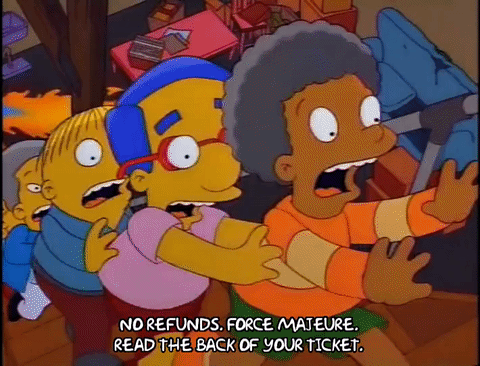Since the COVID-19 outbreak, the entertainment industry is one that has been heavily impacted. From film production to premieres, COVID-19 has screamed "cut" to the entertainment world as we knew it.

This halt in production has prevented entertainers from coming together to produce content due to social distancing guidelines and stay-at-home orders. These regulations have left creators and legal executives pondering what happens to contracts currently in place. The first thought to enter legal minds? Force Majeure. Does COVID-19 fall into this category?
Force Majeure is a legal concept that allows an "excusable delay" in the performance of a contract. Typically, this delay is caused by unforeseen circumstances where neither party is at fault. While this legal concept may be available to certain parties, it is important to look at the language of the agreement and to perform duties that are still legally permissible.

Permissible duties may include independently shooting content to promote a brand or project and posting to social media in accordance with a delivery schedule. In the midst of global chaos, it would be even more troublesome for a party to not perform permissible duties and then get slapped with a breach of contract lawsuit.
In the event a contract does not have a Force Majeure provision, the legal doctrine of frustration and doctrine of impossibility may come into play. In plain terms, the doctrine of frustration provides that duties called for in the contract may be possible to perform, but the intervening unforeseeable event caused a party to no longer receive the same benefits as when they first entered the agreement. Whereas, the doctrine of impossibility excuses a party's nonperformance when performances becomes objectively impossible because the purpose of the contract or the ability to perform the duties are not possible.
Although these provisions are available as a resource to provide relief to parties impacted by unforeseen events such as COVID-19 (if applicable), invoking these doctrines may be more time-consuming and costly because interpretation and applicability of the doctrines varies across agreements. It is also important to note that invocation of the doctrines typically does not excuse a party from making required payments under the agreement.
While the COVID-19 pandemic is new and has caused global devastation, delays and cancellations of events, such parties to a contract may be more successful in discussing the delays, rescheduling performances or negotiation contracts as opposed to attempting to terminate the contract completely.

